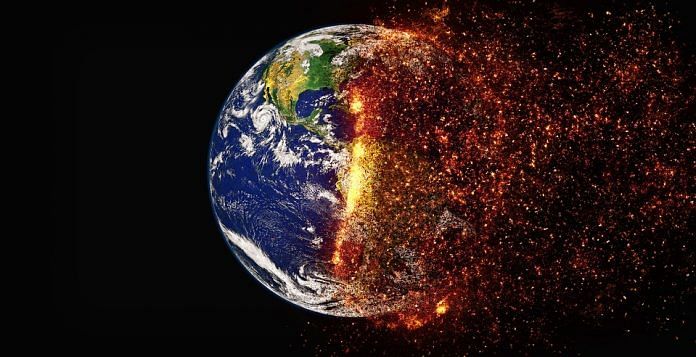On World Environment Day, let’s look at the greening trend that is fast becoming the crutch of climate change deniers worldwide.
Bengaluru: As the world becomes warmer thanks to greenhouse gases, there’s an obvious question that comes to mind but gets overridden by our sensibility: If the carbon dioxide content of air increases, shouldn’t plants then thrive? The answer to this is, unexpectedly, yes.
The world has indeed seen a greening trend over the past decade, with increased forest cover in the tropics and even Antarctica becoming greener. However, that isn’t necessarily a good thing. On World Environment Day, let’s look at the greening trend that is fast becoming the crutch of climate change deniers worldwide.
Our first line of defence when it comes to climate change and a warming planet has always been to plant trees. Trees help cool our planet down, and even the presence of a single tree elicits an almost tactile response in temperature change. So, lucky for us, there have been numerous studies recently showing how the earth is actually greening.
Over half of all green land on the planet has become greener, while only 4% has become browner. What’s more, it’s not only green lands brightening their hue. Studies show that even the Arctic and Antarctic are now becoming green.
That plants bloom in a carbon dioxide environment isn’t new knowledge; it is literally the mechanism employed by greenhouses, the origin of the phrase we use to describe a warming planet today. However, the grass isn’t getting greener on our side. Literally. Because these life-giving effects of trees work only in the tropical regions. There is growing evidence that beyond tropical regions, trees have little to no effect on cooling the planet, and in fact, at times have demonstrated the opposite.
Trees absorb lots of sunlight, and with dark green leaves and brown barks, a tree cover often heats up the ground, an effect that is normally cancelled out by the incredible amounts of water evaporating off the surface of these leaves. The water for this process, called evotranspiration, comes from deep underground and gets sucked in by roots. The water evaporating from these leaves tends to form tiny clouds around the plant, reflecting off sunlight, keeping the areas around plants cool.
However, when snow covers the ground as is in temperate zones, the evotranspiration process isn’t as effective. Instead, plants simply continue to absorb sunlight and heat, cancelling out any cooling effect their presence otherwise offers. Indeed, when the evotranspiration was modelled into existing climate forecasting systems, loss of forest cover actually brought down the global temperature by 0.5 degrees.
There comes a point when trees reach their peak capacity for carbon dioxide absorption. A green Africa would no longer be able to stave off hurricanes that would inundate United States. What’s more, it isn’t just the CO2, there are a lot of other contributors to global warming, including but not limited to methane and carbon monoxide.
The more our polar regions green, the warmer they become. This warmth accompanies other effects that it triggers, such as tsunamis caused by glacier melt or deadly diseases trapped in ice being released again into the air.
All in all, as with everything in this world, the two thumb rules to stick by are that too much of a good thing can be a bad thing, and really no positive effects can come of the havoc we humans are wreaking on this planet.



